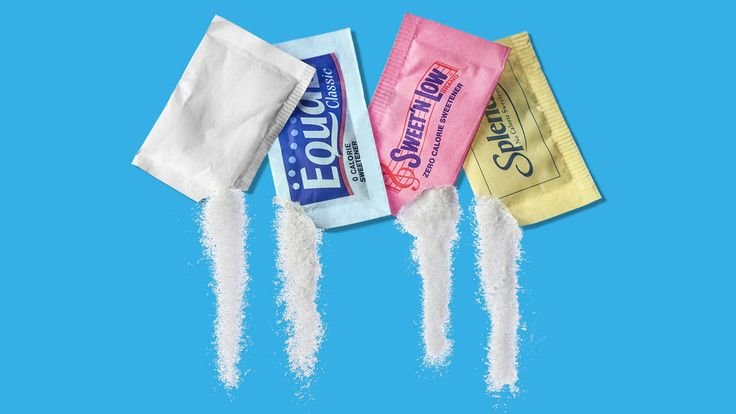
Introduction to Aspartame
What is Aspartame?
Aspartame is an artificial sweetener that is used as a sugar substitute in many food and beverage products. It is about 200 times sweeter than sucrose (table sugar), making it a popular choice for those looking to reduce their sugar intake. Aspartame is commonly found in diet sodas, sugar-free gum, yogurt, and a variety of other low-calorie or sugar-free foods. It is composed of two amino acids, aspartic acid, and phenylalanine, which are known as the building blocks of protein.
History of Aspartame
The history of aspartame dates back to the 1960s when it was discovered by chemists working for a pharmaceutical company. Initially, aspartame was intended to be an anti-ulcer drug, but its sweet taste was noticed during testing. In 1981, the U.S. Food and Drug Administration (FDA) approved the use of aspartame as a food additive. Since then, it has become one of the most widely used artificial sweeteners worldwide. Despite controversies and concerns over its safety, aspartame continues to be a key ingredient in many low-calorie and sugar-free products.
Composition of Aspartame
Chemical Structure
Aspartame, an artificial sweetener used in various food and beverage products, consists of a unique chemical structure. It is composed of two amino acids, aspartic acid, and phenylalanine, which are essential building blocks of protein. These amino acids are linked to a methyl ester group, forming the specific molecular structure of aspartame. This structure is what gives aspartame its intense sweetness, about 200 times sweeter than sucrose.
Ingredients
When looking at the ingredients of aspartame, it is essential to note that it is a low-calorie sugar substitute. The components of aspartame include aspartic acid, phenylalanine, and a methyl ester group. These ingredients come together to create a sweetening effect without adding significant calories to the diet. Aspartame’s composition has made it a popular choice for individuals looking to reduce their sugar intake while still enjoying sweet-tasting foods also supporting weight management or those with diabetes looking for sugar-free alternatives. The specific combination of these ingredients forms the foundation of aspartame’s chemical makeup and functionality.
Aspartame in Food and Beverages
Common Products Containing Aspartame
Aspartame is a widely used artificial sweetener found in a variety of food and beverage products. It is commonly present in diet sodas, sugar-free chewing gum, yogurt, sugar-free syrups, and even some pharmaceuticals. The sweetness of aspartame allows manufacturers to reduce the sugar content in their products while maintaining a desirable taste profile. This makes it a popular choice for those looking to manage their calorie intake without sacrificing the sweetness they crave.
Regulations and Safety
The use of aspartame is strictly regulated by food safety authorities around the world. Organizations such as the FDA and EFSA have extensively studied aspartame and have confirmed its safety for consumption. However, it is important to note that individuals with phenylketonuria (PKU), a rare genetic disorder, should avoid aspartame due to its phenylalanine content. Aspartame, when used within the recommended guidelines, is considered safe for the general population and has been deemed an effective sugar substitute for various dietary needs.
Health Effects of Aspartame
Impact on Weight and Metabolism
When it comes to the health effects of aspartame, its impact on weight and metabolism is a topic of interest. Aspartame is often used as a sugar substitute in various low-calorie or sugar-free food and beverage products. Studies have shown that substituting sugar with aspartame can aid in weight management by reducing overall calorie intake. Additionally, aspartame does not raise blood sugar levels, making it a suitable option for individuals monitoring their glucose levels.
Controversies and Myths
Aspartame has been the subject of various controversies and myths regarding its safety and potential side effects. Despite being deemed safe for consumption by regulatory authorities, there are still misconceptions surrounding its use. Some unsubstantiated claims link aspartame to health conditions such as cancer or neurological disorders. However, extensive research has not provided conclusive evidence to support these claims. It is essential to rely on scientific studies and regulatory approvals when evaluating the safety of consuming products containing aspartame.
Also Read: Understanding Medical Conditions: Causes, Symptoms
Aspartame and Diabetes
Usage in Diabetic Products
Aspartame is commonly used in various diabetic products as a sugar substitute due to its low-calorie nature. Diabetic-friendly foods and beverages often utilize aspartame to provide sweetness without affecting blood sugar levels. Individuals with diabetes can enjoy a wider range of options with the availability of products sweetened with aspartame, making it easier to adhere to dietary restrictions.
Effects on Blood Sugar Levels
One essential aspect of using aspartame in diabetic products is its impact on blood sugar levels. Aspartame does not raise blood sugar levels, making it a suitable alternative for diabetics who need to control their glucose intake. By choosing products containing aspartame instead of sugar, individuals can satisfy their sweet cravings without worrying about adverse effects on their blood sugar levels. This allows for more flexibility in meal planning and helps individuals manage their diabetes more effectively. It is recommended for individuals with diabetes to consult healthcare professionals before making significant dietary changes.
